
Filippo Marchese was a leading figure in the Sicilian Mafia and a hitman suspected of dozens of homicides. Marchese was one of the most feared killers working for mafia boss Vincenzo Chiaracane, closely related to the Giuseppe Greco family which was in control of the Ciaculli neighbourhood of Palermo.
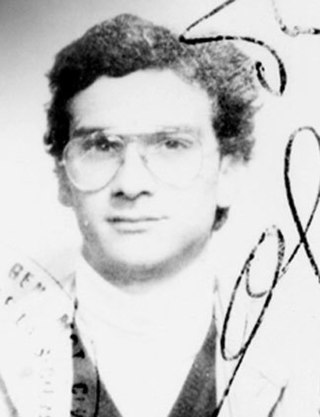
Matteo Messina Denaro, also known as Diabolik, was a Sicilian Mafia boss from Castelvetrano. He was considered to be one of the new leaders of the Sicilian mob after the arrests of Bernardo Provenzano on 11 April 2006 and Salvatore Lo Piccolo in November 2007. The son of a Mafia boss, Denaro became known nationally on 12 April 2001 when the magazine L'Espresso put him on the cover with the headline: Ecco il nuovo capo della Mafia.
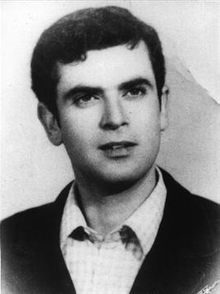
Leonardo Vitale was a member of the Sicilian Mafia who was one of the first to become an informant, or pentito, although originally his confessions were not taken seriously. Vitale was a "man of honour" or member of the Altarello di Baida cosca or family, Altarello being a small village just outside Palermo.
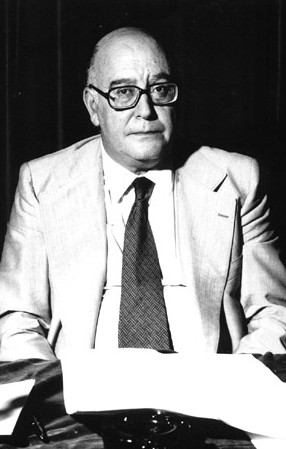
The Sicilian Mafia Commission, known as Commissione or Cupola, is a body of leading Sicilian Mafia members to decide on important questions concerning the actions of, and settling disputes within the Sicilian Mafia or Cosa Nostra. It is composed of representatives of a mandamento that are called capo mandamento or rappresentante. The Commission is not a central government of the Mafia, but a representative mechanism for consultation of independent Mafia families who decide by consensus. "Contrary to the wide-spread image presented by the media, these superordinate bodies of coordination cannot be compared with the executive boards of major legal firms. Their power is intentionally limited [and] it would be entirely wrong to see in the Cosa Nostra a centrally managed, internationally active Mafia holding company," according to criminologist Letizia Paoli.

The Cuntrera-Caruana Mafia clan was a Mafia clan of the Cosa Nostra and held a key position in the illicit drug trade and money laundering for Cosa Nostra in the 1980s and 1990s. The Italian press baptized the clan as "The Rothschilds of the Mafia" or "The Bankers of Cosa Nostra".

Domenico "Mimmo" Raccuglia, nicknamed 'u vitirinariu, is a member of the Mafia in Sicily. He was a fugitive and included on Italy's most wanted list since 1996, until his capture on November 15, 2009, near Trapani.
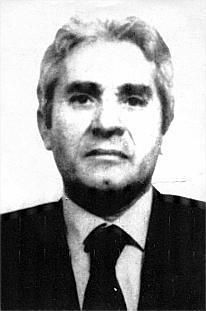
Antonino Geraci, better known as Nenè or il vecchio, was the historical boss of the Mafia in Partinico, in the Metropolitan City of Palermo. Geraci sat on the Sicilian Mafia Commission since the mid-1970s and belonged to the hard line faction allied with the Corleonesi of Totò Riina and Bernardo Provenzano. According to the pentito Tommaso Buscetta, Geraci took care of the fugitive Riina while he stayed in Partinico.

Giuseppe Graviano is an Italian mafioso from the Brancaccio quarter in Palermo. He also was one the men of the death squad that murdered Salvatore Contorno's relatives. He is currently serving several life sentences. He and his three siblings became members of the Sicilian Mafia Commission for the Brancaccio-Ciaculli mandamento, substituting Giuseppe Lucchese who was in prison.

Salvatore "Vito" Vitale, also known as Fardazza, is a member of the Sicilian Mafia. For a while he was considered the heir of Totò Riina and was closely connected to Leoluca Bagarella.
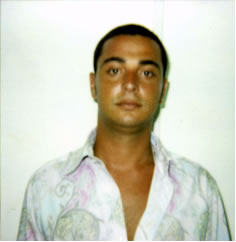
Giovanni "Gianni" Nicchi is a member of the Sicilian Mafia. Despite his young age – he is nicknamed 'u picciutteddu – he is considered to be one of the leading mafiosi of Cosa Nostra in Palermo. He was on the "most wanted list" of the Italian ministry of the Interior since 2006, until his arrest on 5 December 2009.
Pietro Tagliavia is a member of the Sicilian Mafia. Despite his young age, he is considered to be one of the upcoming leading Mafiosi of Cosa Nostra in Palermo.
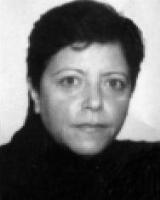
Maria Licciardi is an Italian criminal affiliated with the Camorra, head of the Licciardi clan, and one of the bosses of the Secondigliano Alliance. She was one of the most powerful bosses of the Camorra in the city of Naples from 1993 until her arrest in 2001.
Raffaele Ganci was a member of the Mafia in Sicily from the Noce neighbourhood in Palermo. He was considered to be the right-hand man of Cosa Nostra boss Totò Riina and sat on the Sicilian Mafia Commission.

Gaetano Fidanzati was a Sicilian Mafia boss of the Resuttana mandamento in Palermo and heavily involved in drug trafficking. He was among the first Mafia bosses to establish a presence in Northern Italy, in particular Milan, and was the protagonist of the alliances between the Sicilian Cosa Nostra, the American Cosa Nostra, the Neapolitan Camorra and the Colombian drug cartels.
Maria Serraino was an Italian female criminal and a member of the 'Ndrangheta in Calabria. She is one of the rare examples of a woman leading a 'Ndrangheta clan.
Giovanni Bonomo was a member of the Sicilian Mafia. He was on the "most wanted list" of the Italian ministry of the Interior since 1996 for two murders, drug trafficking and money laundering, and Mafia association, until his arrest in Senegal in November 2003.
The Secondigliano Alliance is a strategic alliance of Camorra clans in Naples, Italy and its hinterland which controls drug trafficking and the extortion racket in many areas of Naples since the 1990s. The Alliance has branches in the Netherlands and in Spain, with interests in international drug trafficking and massive money laundering.
The Graviano family is a Sicilian Mafia clan, composed of four mafioso siblings: Benedetto, Filippo, Giuseppe and Nunzia. Their father was Michele Graviano, uomo d'onore that belonged to the Brancaccio Mafia family and was murdered by Gaetano Grado in 1982.
Settimo Mineo is an Italian member of the Sicilian Mafia Pagliarelli mandamento from Palermo.
The Galatolo Mafia clan was a criminal family originating from the Acquasanta neighborhood of Palermo. They are one of the longest-running Mafia clans in the city, having held important positions throughout most of the 20th century and beyond and even coming to rule the entire Resuttana mandamento in the early 21st century.












